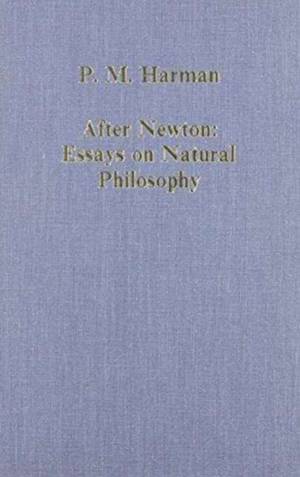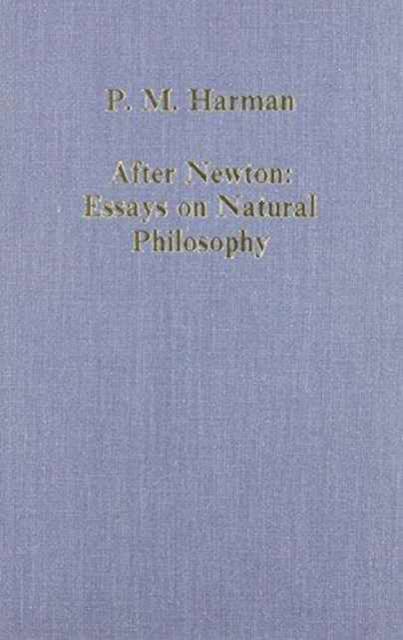
- Afhalen na 1 uur in een winkel met voorraad
- Gratis thuislevering in België vanaf € 30
- Ruim aanbod met 7 miljoen producten
- Afhalen na 1 uur in een winkel met voorraad
- Gratis thuislevering in België vanaf € 30
- Ruim aanbod met 7 miljoen producten
Zoeken
Omschrijving
In the period 1700-1850 there took place a major transition in natural philosophy: from Newton's concept of passive matter activated by ethereal and active principles, to the conception of nature as a self-contained system, its activity being seen in terms of energy and field principles which were internal to the natural order. Without neglecting the scientific context, Dr Harman's approach is from the standpoint of the history of ideas. The first part of the volume deals with the British tradition of speculation about the nature of matter, ether and force; the second with the Continent, with the Leibnizian and Kantian critiques of Newtonian natural philosophy, and the development of Helmholtz's principle of the conservation of energy. The metaphysical and theological dimensions to matter theory are seen as fundamental to this profound shift in sensibilities: they did not determine scientific practice, but they constrained its form and shaped the structure of scientific thought. Une transition importante dans le domaine de la philosophie naturelle a pris place entre 1700 et 1850: passant du concept de Newton, selon lequel la matière inerte etait activée par des principes actifs et sublimes, à celui de la nature en tant que système se suffisant à lui-mÃame, son activité étant considérée en termes d'énergie et de principes pratiques qui appartenaient à l'ordre naturel. Sans pour autant négliger le contexte scientifique, l'approche du Dr Harman prend l'histoire des idées pour point de départ. La première partie du volume traite de la tradition spéculative britannique quant à la nature de la matière, éther et force; la seconde traite du Continent avec la critique leibnitzienne et kantienne de la philosophie newtonienne et le développement du principe de conservation d'énergie de Helmholtz. Les dimensions théologiques et métaphysiques de la théorie de la matière sont considérées comme étant fondamentales à ce changeme
Specificaties
Betrokkenen
- Auteur(s):
- Uitgeverij:
Inhoud
- Aantal bladzijden:
- 336
- Taal:
- Engels
- Reeks:
Eigenschappen
- Productcode (EAN):
- 9780860783480
- Verschijningsdatum:
- 26/02/1993
- Uitvoering:
- Hardcover
- Formaat:
- Genaaid
- Afmetingen:
- 149 mm x 224 mm
- Gewicht:
- 571 g

Alleen bij Standaard Boekhandel
+ 366 punten op je klantenkaart van Standaard Boekhandel
Beoordelingen
We publiceren alleen reviews die voldoen aan de voorwaarden voor reviews. Bekijk onze voorwaarden voor reviews.











